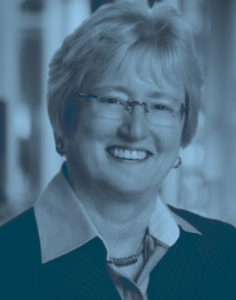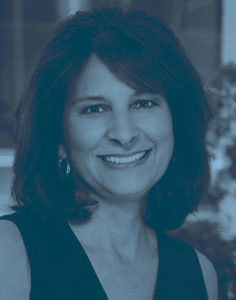
Leading with Heart and Mind: A Baldrige Award Winner’s Perspective
When Nancy Schlichting became the CEO of Detroit-based Henry Ford Health System in 2003, it needed a turnaround.
The culture, Schlichting recalls, was described as “a thousand points of veto.” It was impossible to get anything done, and leadership needed, more than anything, to do something for the hospital to survive.
Not only did the hospital survive, it thrived. In 2011, it won a Malcolm Baldridge National Quality Award. Baldridge examiners saw a completely different system. Far from a system on the brink of crisis, Baldridge examiners said Henry Ford was a hotbed for innovative solutions.
It got to that point through Schlichting’s leadership, which was communicated throughout the organization through close and constant work with her Chief Communications and Marketing Officer Rose Glenn. Today, Schlichting leads the Walgreens Boots Alliance and Glenn is the chief marketing and communications officer at Michigan Medicine.
Early this year, we asked both of them to reflect on the change they managed together in Detroit. An edited transcript of the conversation is below:
Jarrard Inc: When you started at Henry Ford, the system was in crisis. Why did you want that job?

Schlichting
Nancy: I do tend to gravitate to difficult things.
But when I moved to Detroit, it was the best place I’d ever lived and worked.
Rose: If I can jump in here. You hear Nancy’s sincerity and authenticity and that was how she was with our doctors, our staff — every stakeholder group. And to affect change, you really have to believe in what the leader is representing and where he or she is taking you. And Nancy, as compressed as she was for time, understood that and embraced it.
In other words, you can have all the right tools at an organization. But if you don’t have the leader articulating a vision and involving and engaging people, it is just not going to work.
Jarrard Inc: Nancy, how did you carry out that authenticity in your leadership?

Glenn
Nancy: There are a few things that have always been in my head that have driven that type of atmosphere. One comes from the fact that I started on the front line. I understood that every single job was important and every single job was hard. And I also knew that trust is earned every day with each decision, every interaction. There’s a spotlight on leadership and everything we do is watched. And if you think employees don’t understand or know what’s going on, you’re crazy.
I always thought my fundamental job was to create an environment where every employee could reach their full potential. And when you do that, you’re not in a control mode. You’re into creating these frameworks, as Rose described, that everyone can connect with. And every day you trust the fact that people are going to try to do their very best because they see me and the whole leadership team trying to do that. And it’s just amazing what happens.
Jarrard Inc: Did you worry about relinquishing control?
Nancy: I think when people are in control, they actually slow things down. People move a lot faster when they don’t have to go through decision-making that happens at top. Innovation happens when people believe they can do things.
Rose: Innovation happens when people are empowered, but also, when there’s a culture of sharing information, because information is equated with power. I think Nancy brought a transparency to her leadership platform that was so important. I’ve seen places where people hang onto information and create silos, and then people aren’t working together for the benefit of the organization.
That’s when things really fall apart and you have, I think, a stagnation in innovation. There’s also a fear of failure that goes with that. That was another piece of our culture — it is really important during times of change for people to know that it’s okay to fail, to learn from mistakes and to try again. We definitely had that “fail fast” mentality.
Nancy: I would add that I was so lucky to have Rose and her team. Because – I’ve I told her this and I believe it – we had the best communication engagement team you could ever have. Every month, we sat together and talked about strategic and operational issues and communication strategies.
Rose: Nancy is a communications executive’s dream CEO. The reason is, she takes it extremely seriously. She believes that communications needs to be incorporated into every initiative. And not just the initiatives, but the overall culture. So she allotted her time as such. She not only spent an hour with me every month, but then she spent an hour with my leadership team talking about where the communication gaps were, what we needed to prioritize, where our team needed to be.
I will always be a huge believer that the Chief Communications Officer has to report to the CEO and that there needs to be lots and lots of engagement between the two.
Jarrard Inc: During your time at Henry Ford, you both led the organization through critical challenges. How did you work together to talk about the most difficult changes?
Rose: Nancy is a huge believer in joy at work. When everything seems very cumbersome, and people feel down because they’re going through so much change, then we have to make having fun at work present in people’s lives. We did a lot of work to share humor and empathy, which helped tremendously.
Nancy: The fun thing is important, because I started as the CEO of Henry Ford Hospital during a very bad time.
We had a committee of people — employees and some of our leaders — who would look for ways that we could have some fun, even though it was tough. We had lunch jams with music and food. We went out and planted flowers, because our landscaping was atrocious but we didn’t have any money, so we gave little trowels to everyone. We just looked for small ways that we could encourage people and provide hopefulness during some really tough years.
Jarrard Inc: Where did you learn this leadership style?
Nancy: My mother taught me a lot. She was a relationship builder in her life. She never went into a grocery store without talking to every single person and knowing about their family, knowing if they had an illness or anything. She was just that way. I think I picked up some of those instincts.
I knew that you have to lead with your heart as well as your mind. I knew that you’re not going to inspire people during tough times if you don’t give them a sense of hope. When I was in college, my Dad had the potential of being laid off. They announced in the company that ten percent of employees would be laid off — he wasn’t, but he assumed he would be. He didn’t sleep for a month. And I remember, he had two kids in college, and I thought, “I am never going to be like that.”
Jarrard Inc: Nancy, it seems like you could lead through difficulty in any industry. Why healthcare?
Nancy: You know, I only got into healthcare because I thought it was so screwed up and I really wanted to see some substantial change in the way hospitals operated. When I used to get up in front of employees and they’d say, “Can you just stop all the change?” I’d look at them and I’d say, “Do you really think we’re perfect yet?” And they’d shake their heads. I’d say, “Well, that’s why we have to change.”
I’d always make it personal for them. I’d say, “Have you ever taken your parent or child or spouse to the hospital?
Does it really work that great?” And they say, “No.” And I’d say, “Well that’s why we have to work on this. We have to make it better for our patients and their families.”
I would remind people all they would need to do is ask anyone in this country if healthcare needs to change, and I think they’d have their answer. It is incumbent upon us as leaders in healthcare to help drive the change. And we are only going to be improving things in the future and making it better – there’s so much opportunity. Don’t shy away from it, embrace it, get excited about how you can affect people’s lives.
Rose: I would just add that we put a lot on our leaders with regard to the need for change, so don’t forget about that group in terms of spending time with them and figuring out how they want to tell the story so they can repeat it and bring up the challenges. But they can also bring up the idea that we can do this together. It sounds hokey, but Nancy rallied our employees around something called “We’re Henry Ford and We Can.”
And during our darkest days, people just started going wild with that phrase because it was inspiring and we believed in it.
But you have to make sure you nurture and engage your leaders, because they’re the ones who are needed desperately in terms of affecting positive change.
Nancy: It’s such an important point because so often, leaders are really kind of cynical. But boy, I’ll tell you, when people feel that you believe in them, they don’t want to let you down. It’s powerful — it really is.
Jarrard Inc: How else did that culture of trust and transparency help you?
Nancy: Well, we didn’t shy away from the media. We had a very open public approach. And I was never afraid to be the spokesperson for the appropriate things. It wasn’t all about me at Henry Ford, but when there was a tough issue, I was out in front.
I think that made a difference, also, on the culture, because so many organizations just run away. And that’s not good from a public perspective at all. I think it also creates this environment of not communicating openly. So we were very intentional about that, and of course, we had a great team.
In my 13 years – and I’m very proud of this, in terms of quality, service, and our internal team – we really never had a bad headline. I think that’s because the press treated us better because we were open. And we could have had bad headlines, but Rose, do you remember one?
Rose: I’m actually trying to think of one right now and I really can’t.
Nancy: It wasn’t like we didn’t have bad news — we did. But we were treated, I think, as well as we could have been.
In today’s world, when you communicate internally it’s external. It’s not like you have any secrets. So we managed our media strategy knowing that everything we communicated could be on the front page of the paper —including our emails.
Jarrard Inc: That is brave and forward-thinking. And it sounds like, with everything, you really were working in tandem. Is there anything else you’d like to share about your experience at Henry Ford together?
Nancy: Just that I miss Rose terribly, and I’m so happy she’s in a great place.
Rose: I feel the same way, Nancy.
